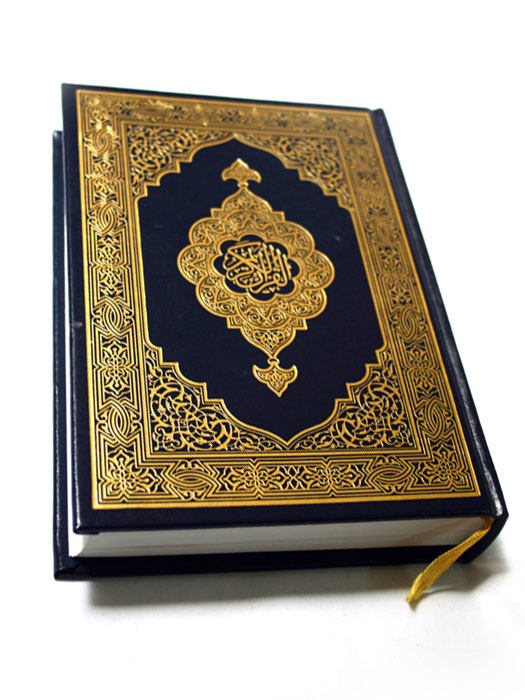Does Holy Quran believe in the notion of man’s superiority to woman?
Question:
Does Holy Quran believe in the notion of man’s superiority to woman? Could you please explain the meaning of Verse 34 of the fourth surah entitled “Women”?
Answer:
The Quranic verse to which you have referred may be rendered in translation as follows: “Men shall take full care of women with the bounties with which Allah has favored some of them in greater measure than others, and with what they may spend of their own wealth. The righteous women are devout, guarding the secret which Allah has willed to be guarded…” [An-Nisa 4:34]
Allah has created human beings as males and females, following the “dual” role which is central to the system of creation. He has given the woman the great tasks of child-bearing, breast-feeding and looking after her children. These are not tasks of the type which may be fulfilled without careful preparation, physically, psychologically and mentally. It is only just, therefore, that the other part, i.e. man, should be assigned the task of providing the essential needs and the protection required for the woman to fulfill her highly important duties. She could not be given all those tasks and be still required to work in order to earn her living and to look after her children at the same time. It is only fair as well that man should be given the physical, mental and psychological qualities which enable him to fulfill his duties in the same way as the woman is given the abilities to help her fulfill her duties. All this is part of the reality of human life, because Allah maintains absolute justice among all.
Among the qualities the woman has been given are tenderness, good reaction and instinctive response to the needs of childhood without waiting for much deliberation and reflection. These are not superficial qualities. Indeed, they are implanted in the woman’s physical, mental and psychological constitution. Some leading scientists believe that they are present in each cell in the woman’s constitution because they are rooted in the first cell which multiplies to form the fetus and the child.
On the other hand, among the qualities the man is given are toughness, slow reaction and response as well as proper thought and reflection before action. All these functions, even since he lived on hunting in the early stages, fighting for the protection of his wife and children, earning his living in any way, require some deliberation and consideration before taking any decision and implementation. These qualities are also deeply rooted in the constitution of man.
It is man’s qualities which make him more able and better equipped to take charge of the family. Similarly, his duty of supporting his family as part of the distribution of duties makes him more suitable to be in charge. That is because earning the living of his family and all its members is part of being in charge. Moreover, looking after the finances of the family is closer to his family duties.
There are two elements which the Qur’an highlights as it states that in Islamic society, men are required to look after woman. It is an assignment of duties on the basis of natural abilities and fair distribution of responsibilities. Each party is assigned the duties to which he or she is most suited by nature.
There is plenty of evidence which points out that the woman prefers that man assumes his role of being in charge of the family. Many women experience feelings of worry, dissatisfaction and unhappiness when they live with men who relinquish their role of being in charge for any reason. This is readily admitted by women who try to challenge man’s role.
Another example of the social repercussion of this unnatural family situation, where the father does not play his role either because of his weak character (or death) which allows the mother to overshadow or control family, is that very often the children suffer instability which may lead to mental perversion and behavioral deviation.
Allah Almighty says in the Qur’an:
“Verily, the Muslims (those who submit to Allâh in Islâm) men and women, the believers men and women (who believe in Islâmic Monotheism), the men and the women who are obedient (to Allâh), the men and women who are truthful (in their speech and deeds), the men and the women who are patient (in performing all the duties which Allâh has ordered and in abstaining from all that Allâh has forbidden), the men and the women who are humble (before their Lord Allâh), the men and the women who give Sadaqât (i.e. Zakât, and alms, etc.), the men and the women who observe Saum (fast) (the obligatory fasting during the month of Ramadân, and the optional Nawâfil fasting), the men and the women who guard their chastity (from illegal sexual acts) and the men and the women who remember Allâh much with their hearts and tongues or praying extra additional Nawâfil prayers of night in the last part of night, etc.) Allâh has prepared for them forgiveness and a great reward (i.e. Paradise).” (Al-Ahzab 33:35)
The Standing Committee for Islamic Research and Ifta’ states:
Islam came to honor women and raise their status, to give them a position that befits them, and to take care of them and protect their dignity. So Islam commands women’s guardians and husbands to spend on them, treat them well, look after them, and be kind to them.
It is reported that the Prophet (peace and blessings be upon him) said, “The best of you are those who are best to their wives, and I am the best of you to my wives” (At-Tirmidhi)
Islam gives women all their rights and allows them to dispose of their affairs in an appropriate manner. Allah says: “…(And they (women) have rights (over their husbands as regards living expenses) similar (to those of their husbands) over them (as regards obedience and respect) to what is reasonable, but men have a degree (of responsibility) over them. And Allah is All-Mighty, All-Wise.)” (Al-Baqarah 2: 228)
This includes all kinds of dealings, buying, selling, compromising, appointing others to act on their behalf, lending, depositing trusts, and so on.
Islam enjoins upon women the acts of worship and duties that befit them, the same duties as men, namely purification, zakah, fasting, Prayer, Hajj, and other acts of worship.
Women are equal to men in terms of reward, remaining steadfast in faith, doing righteous deeds, enjoying a good life in this world and a great reward in the Hereafter. Allah says: (Whoever works righteousness—whether male or female—while he (or she) is a true believer (of Islamic Monotheism) verily, to him We will give a good life (in this world with respect, contentment, and lawful provision), and We shall pay them certainly a reward in proportion to the best of what they used to do (that is, Paradise in the Hereafter) (An-Nahl 16: 97)
It must be finally stated that the way Islam distributes family responsibilities does not by any means lead to the negation of the woman’s character or role in the home and in society at large. Neither does it mean the cancellation of her civil status. It simply defines her role within the family and how it is run because the family is a very important institution which must be protected and maintained. In any institution, the observance of certain values does not mean the abrogation of the character or the rights of the partners or the workers. Islam defines the role of the man and what his being in charge means as well as his duties as one who takes care of his family, protects it and earns its living.



